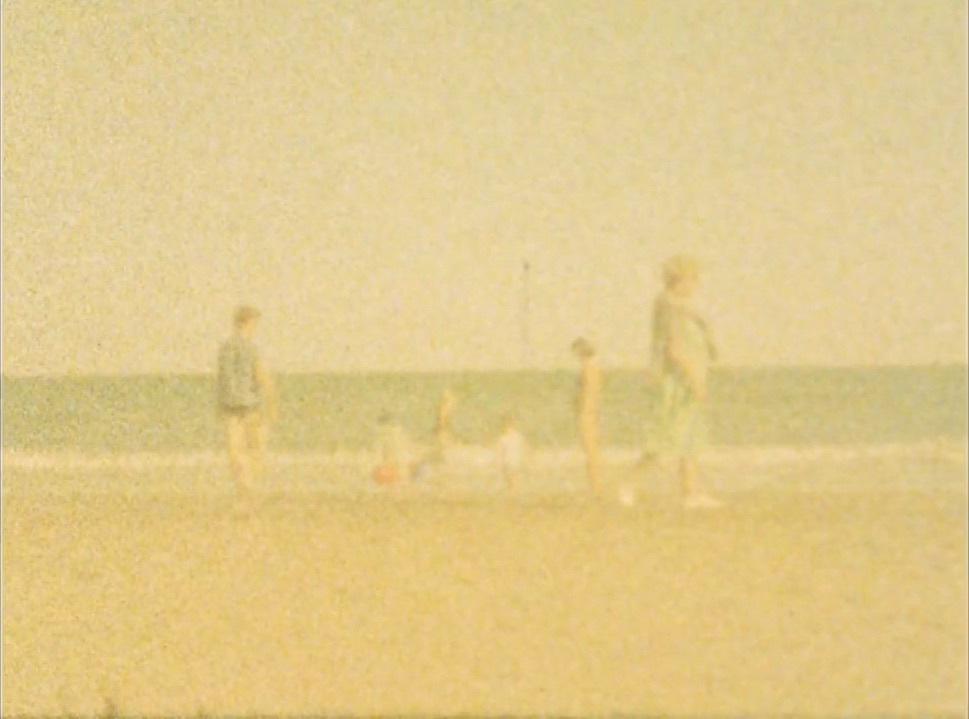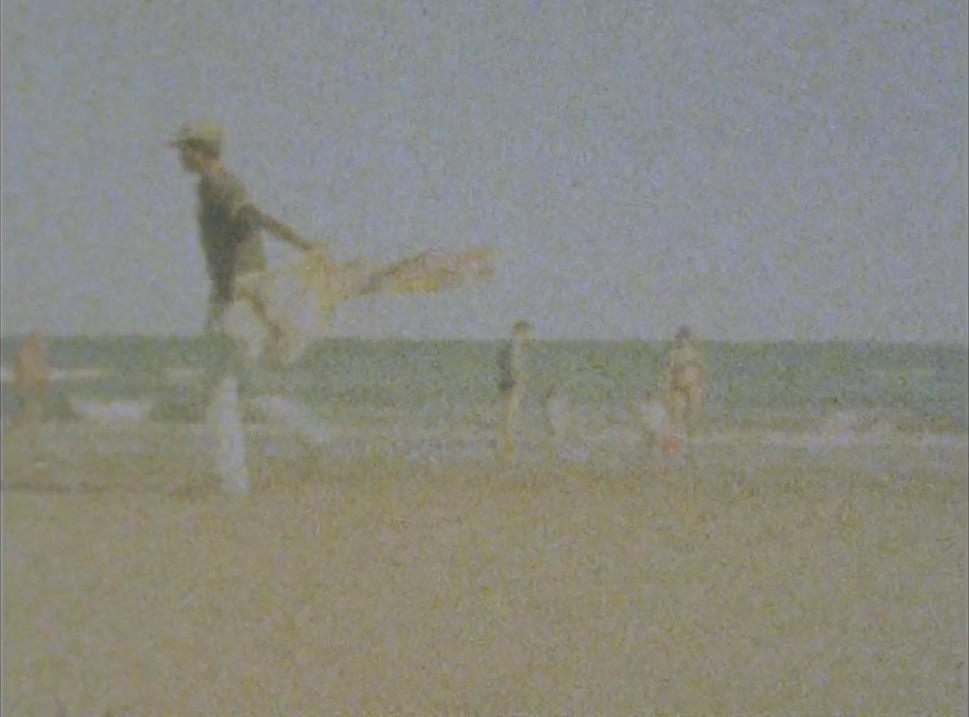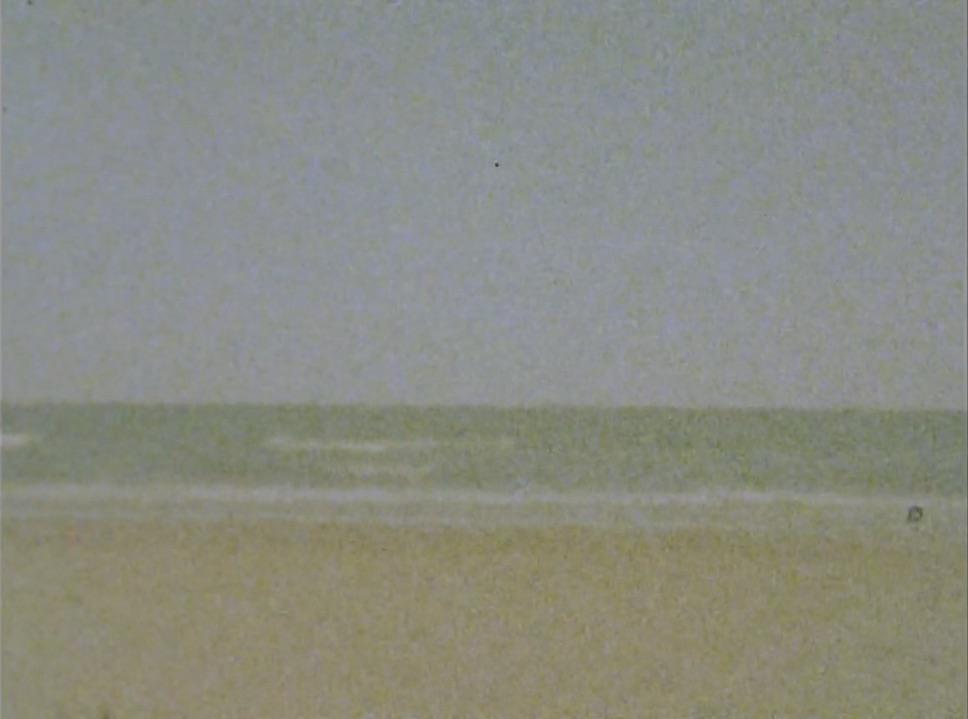Beaches
Images of a family vacationing at the strand: In a changing cast of colors, grainy Super 8 footage tells a story of gently foaming waves whipped by winds at an Adriatic beach. Little children play in the water while watched over by their mother. Their father soon joins them. An older lady passes by, later a man flies a kite in the foreground. The images are tinted pale pink, yellow and blue.
Astrid Ofner´s fragile analog film footage would convey the longing for the hours of summers past and tender familial bonds were it not for the quick-tempered off-screen voice of Sylvie Rohrer pouncing upon images of the quietly rippling sea from the very start. "I must have experienced sorrow as a natural condition," she quotes from an interview with Marguerite Duras: "All women must have suffered without realizing it", her voice continues: Especially when they talked about how happy they were during family vacations at the sea when their children were still young – they were telling themselves a lie. The joy they thought they remembered was dictated to them by men because in reality, "The beaches bored them like crazy."
Sylvie Rohrer´s disillusioned voice pierces the tranquility of the vacation footage and lends the seemingly harmless constellation of father, mother and children a gender specific slant. Super 8 film vaguely reminiscent of home movies from the 1970s is stripped of its implicit retrospective nostalgia by the severity of a biographically tainted estimation articulated by an enraged woman. Her rejection of a patriarchal imagination of intact familial happiness takes time to clench its fist but thereby impacts all the more powerfully: Firstly, there is Astrid Ofner´s citation of the passage in German, three decades after it was published and functioning as a soundtrack parallel to historically resonant images. And then a second time, when the film begins over again, Sylvie Rohrer repeating the text in French. This gradual approach to the original allows Marguerite Duras a far more direct mode of expression, her words speaking to our own contemporary reality with greater aggression and unconsolability. (Alexandra Seibel)
Translation: Eve Heller
It is summer. A summer by the sea. It is hot, a wind is blowing and the waves are foaming in an endlessly melodic, eternally even rhythm, rolling the tide to the shore. Little children play, a mother is watching over them, soon joined by the father. An older lady walks by, later a man flying a string of kites that rise up in the wind. All is quiet and languid. The sea is steady, likewise the light.
A forever unchanging holiday at a flat sandy beach characteristic of the Adriatic coast. Family vacation, endless hours, boredom, memories and dreams. The longing for a different life, for a new love, for transgression.
Grainy Super 8 images, viridescent light, pale colors, the voice of Sylvie Rohrer reverberating as if transmitted by phone. And a few of Marguerite Duras´ thoughts are conveyed, about what women would need and what men do need. (Astrid Ofner)
Viennale catalogue text 2019
Viennale Katalogtext 2019
Die Strände - Les plages
2019
Austria
10 min



